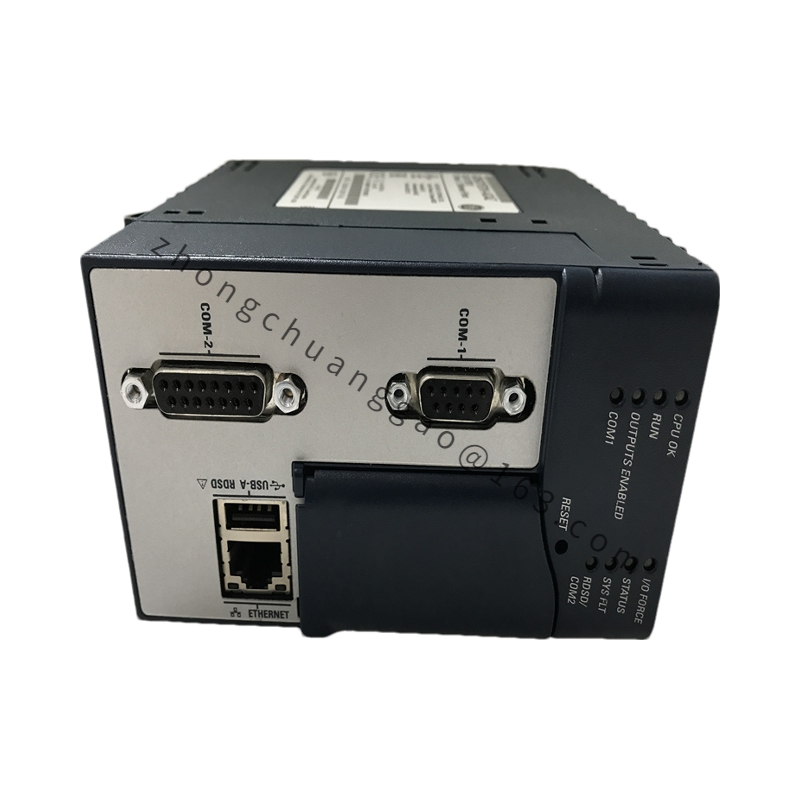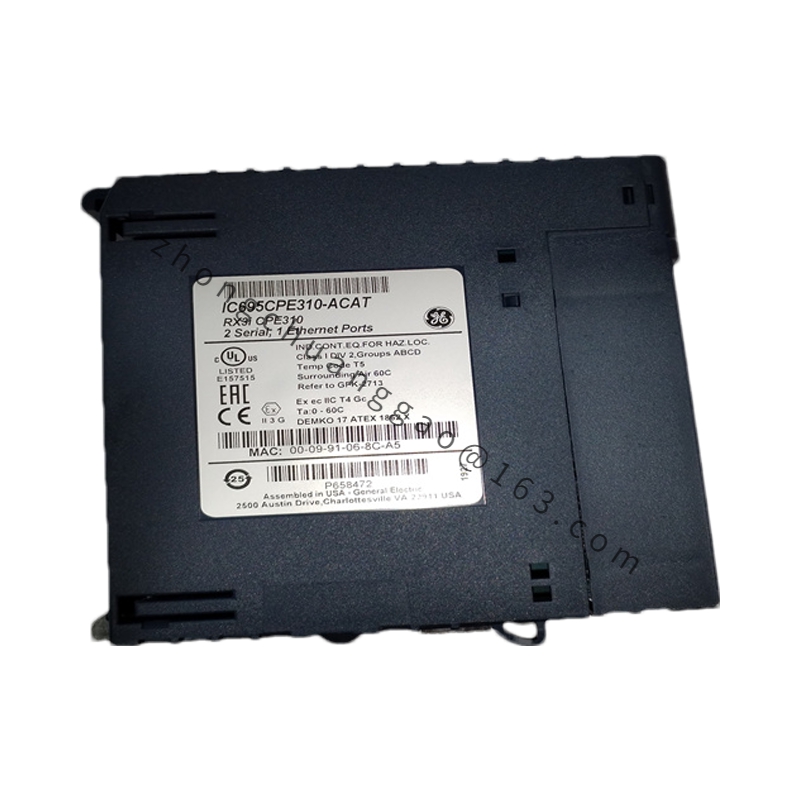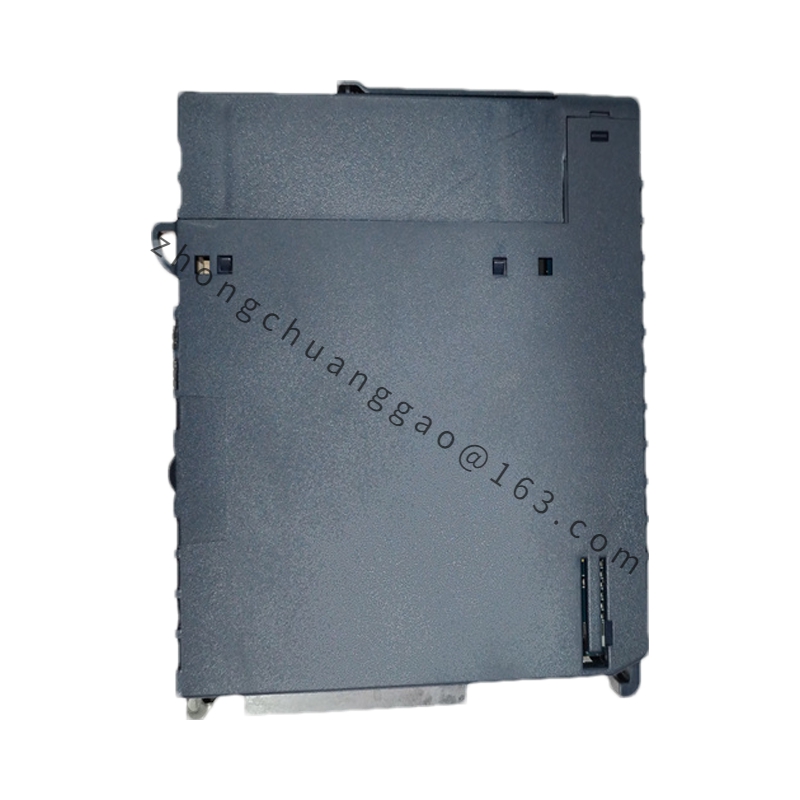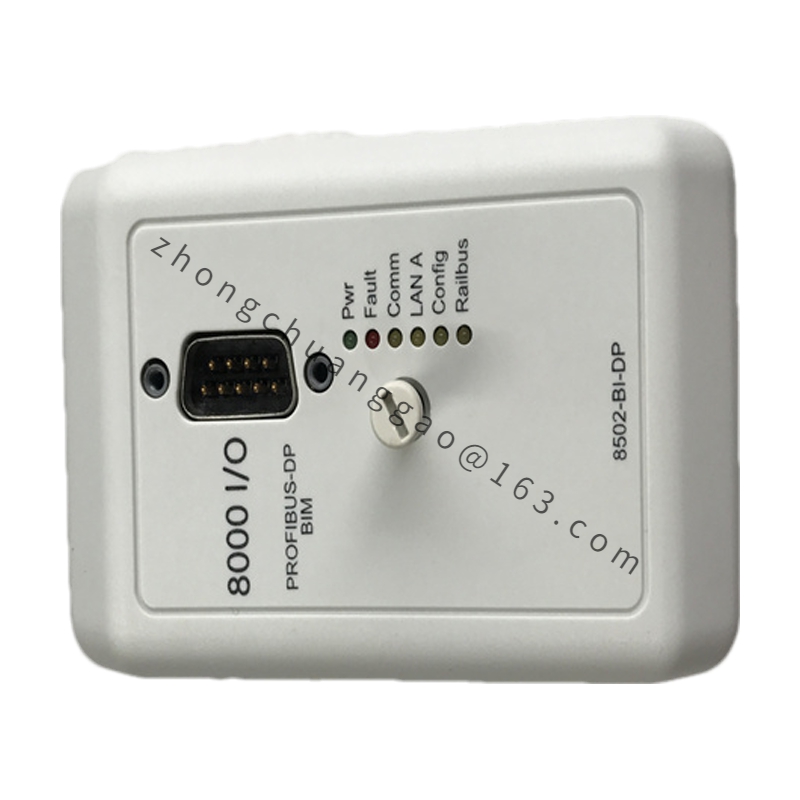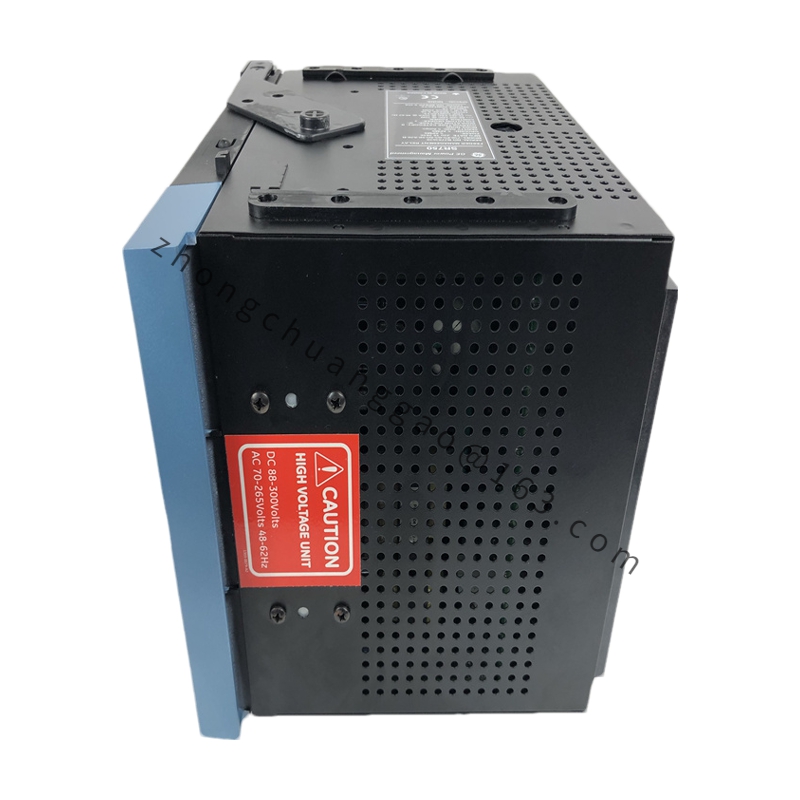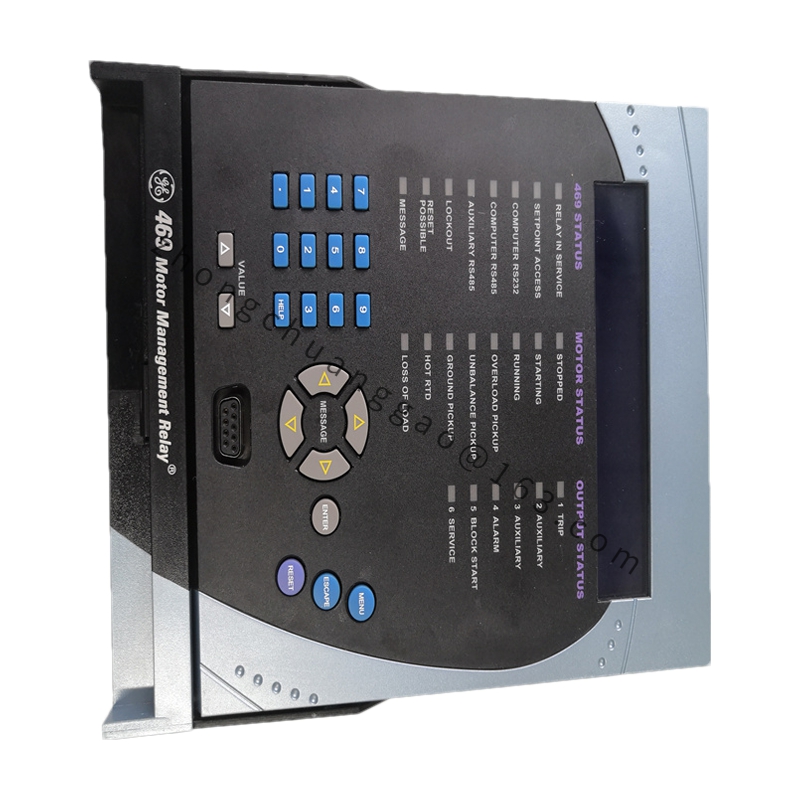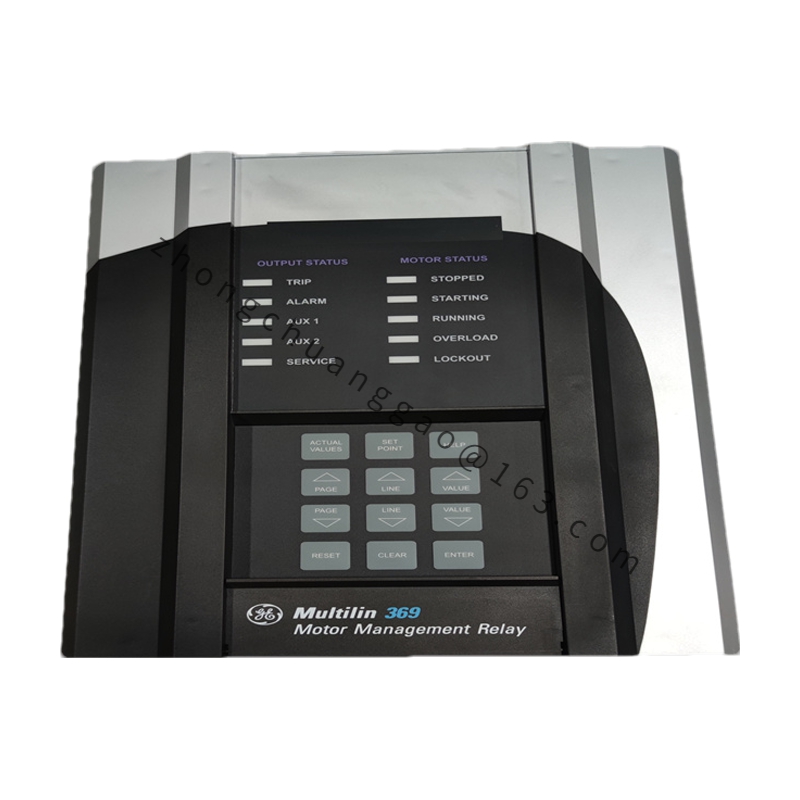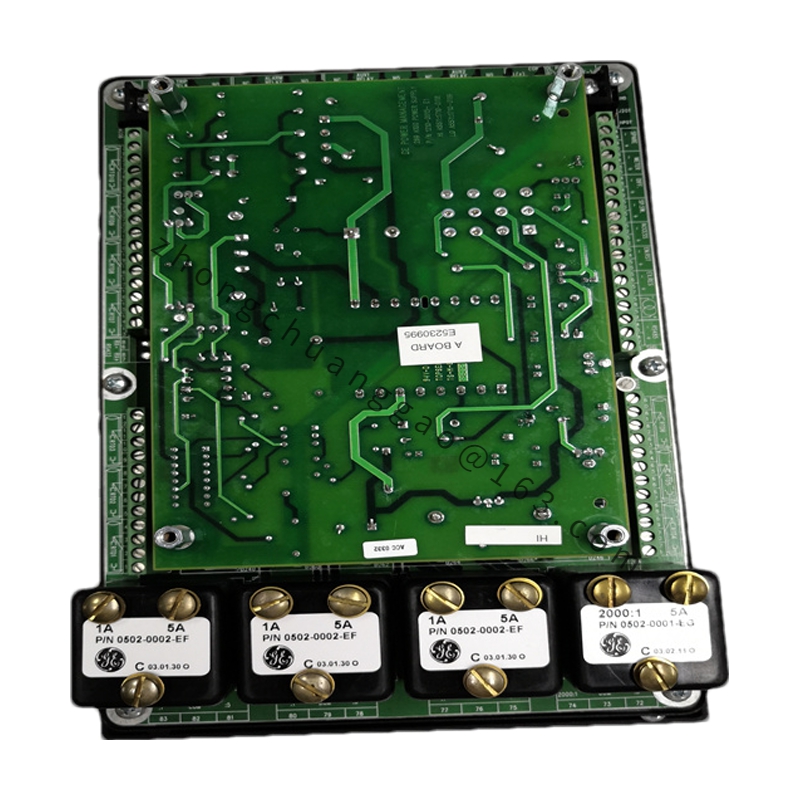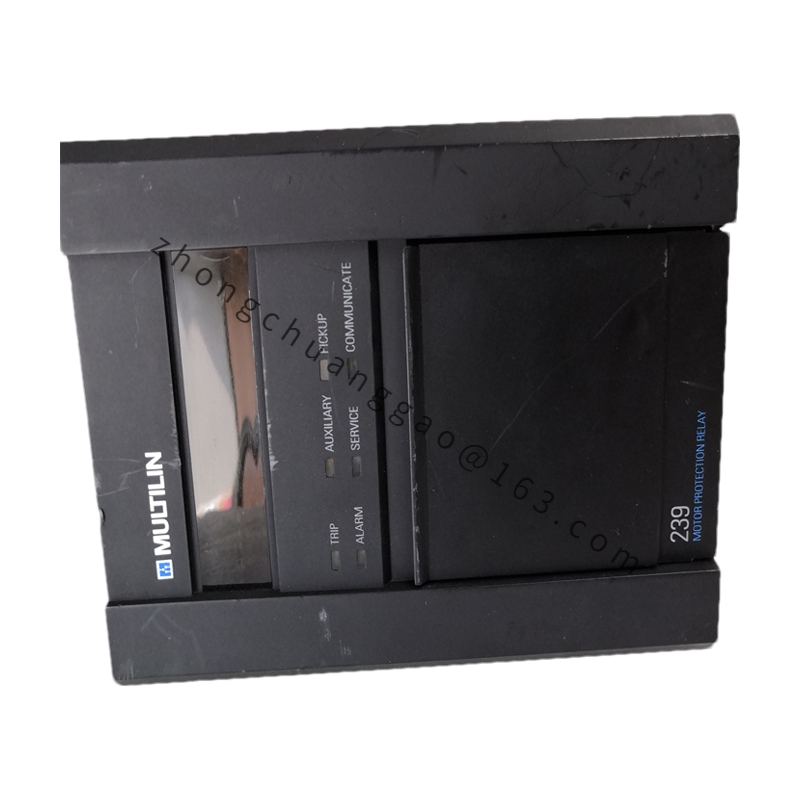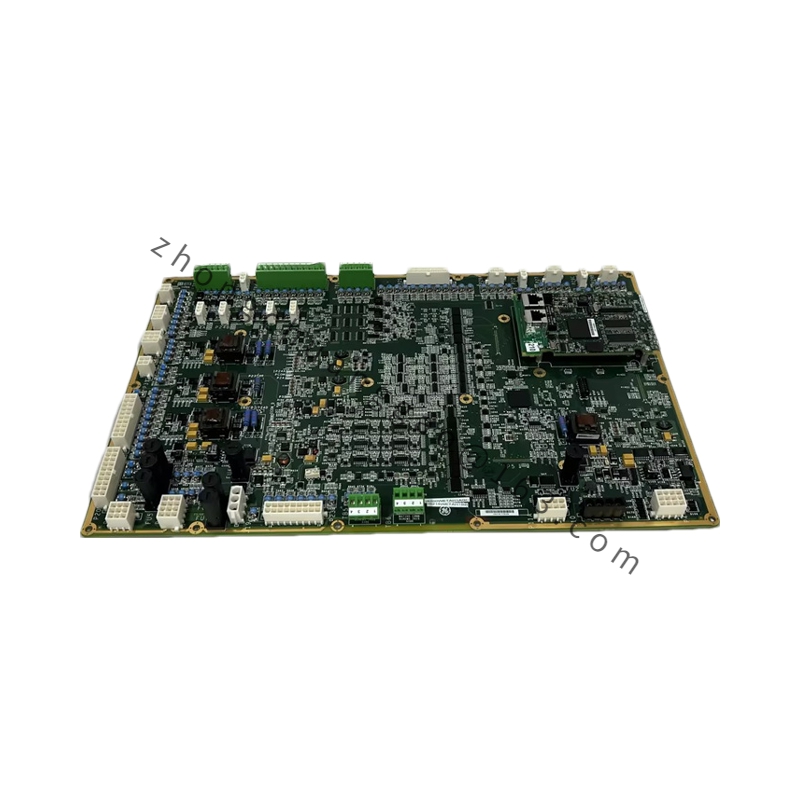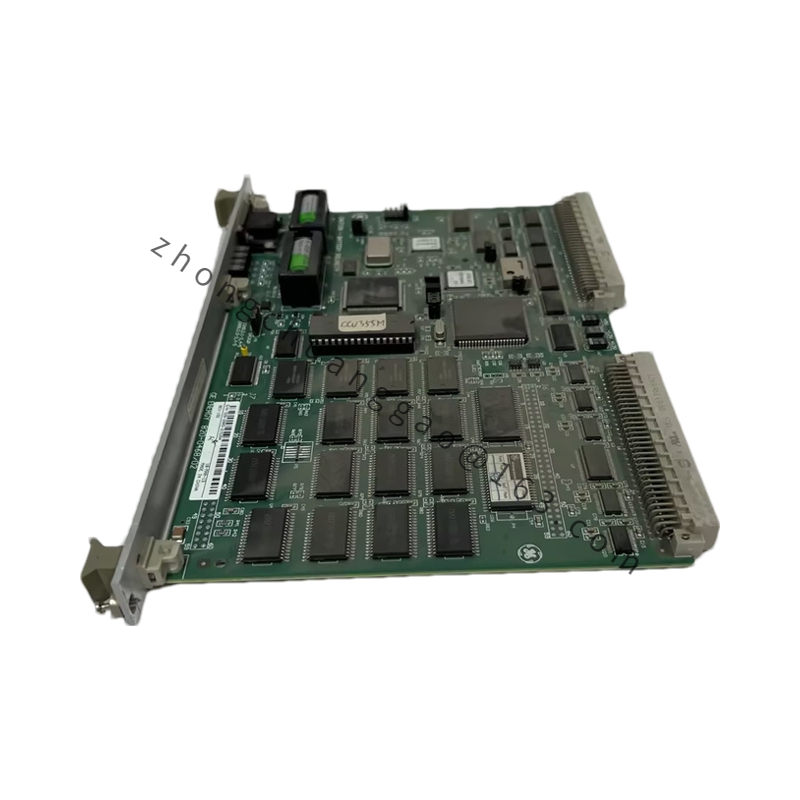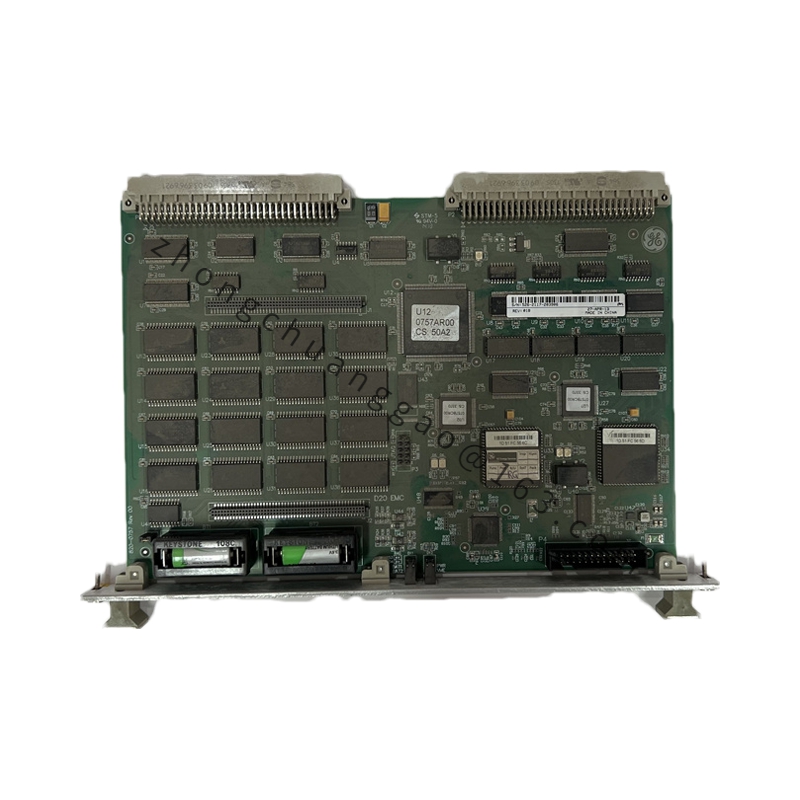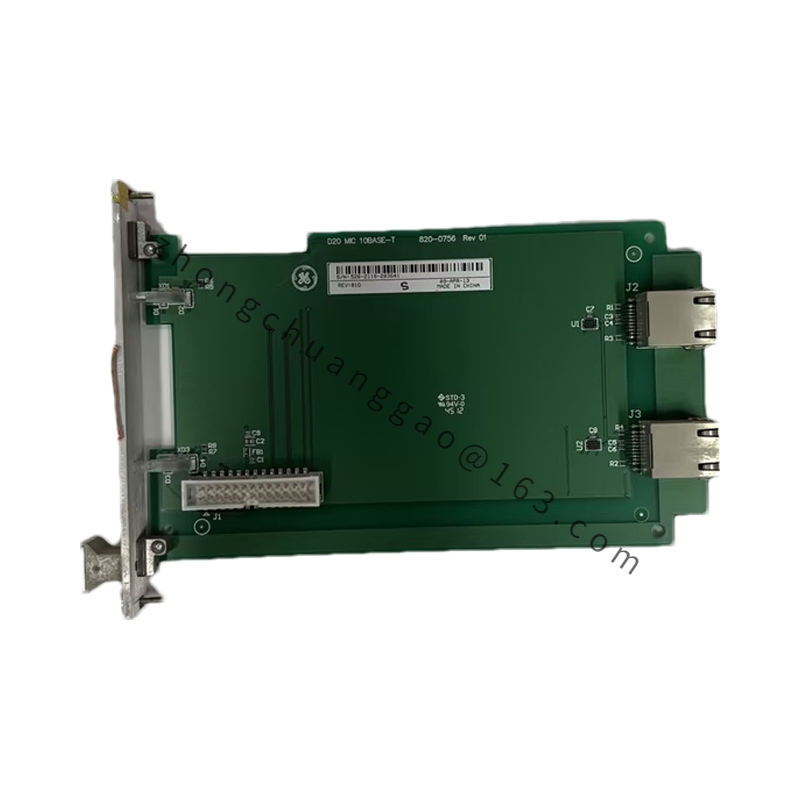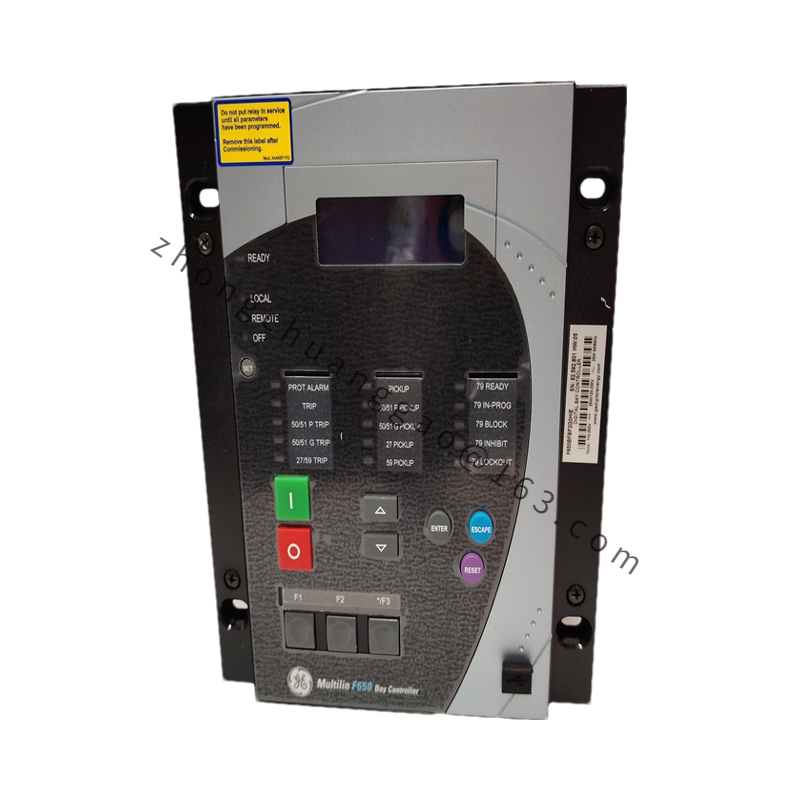Detailed content
Technical Specifications
- Model: IC695CPE310
- Series: GE Fanuc PACSystem RX3i
- Processor: 1.1 GHz Atom processor
- Memory: 10 MB
- Communication Interfaces:
- Embedded Ethernet interface supporting 10Mb/s and 100Mb/s connections
- RS-485 serial port
- RS-232 serial port
- Programming Support:
- Supports programming languages such as Ladder Diagram, Structured Text, C, or Function Block Diagram
- Program Block Capacity: Supports up to 512 program blocks, each with a maximum size of 128 KB
- Protocol Support: Includes Modbus RTU Slave, SNP, and Serial I/O protocols
- Power Requirements: 3.3 VDC, 5 VDC, or 24 VDC
- Compatibility: Communicates with I/O and intelligent option modules via dual-purpose PCI and serial backplanes
Functional Characteristics
- High Processing Power: The 1.1 GHz Atom processor enables the IC695CPE310 to handle complex control logic, communication, data recording, and processing tasks efficiently.
- Large Memory Capacity: The 10 MB memory allows for the storage of extensive control logic and historical data.
- Versatile Communication: The embedded Ethernet interface and RS-485/RS-232 serial ports enable seamless communication with other control devices and networks, supporting multiple communication protocols.
- Easy Configuration and Programming: The IC695CPE310 can be configured and programmed using GE’s industrial control system programming tools, simplifying integration into automation systems.
- High Reliability: As part of GE’s industrial automation products, the IC695CPE310 is designed for long-term, reliable operation in industrial environments.
Application Scenarios
The GE IC695CPE310 is ideal for a wide range of industrial automation applications that require real-time control and monitoring of machines, processes, and material handling systems. Some common application scenarios include:
- Manufacturing: In factories and manufacturing facilities, where precise control of production lines and machinery is crucial.
- Process Industries: For the control of complex processes in industries such as chemicals, oil and gas, and food processing.
- Material Handling: For automated material handling systems, including conveyor belts, sorting machines, and storage facilities.
- Infrastructure: In utilities and infrastructure facilities, where automated control systems manage power distribution, water treatment, and waste management.

